
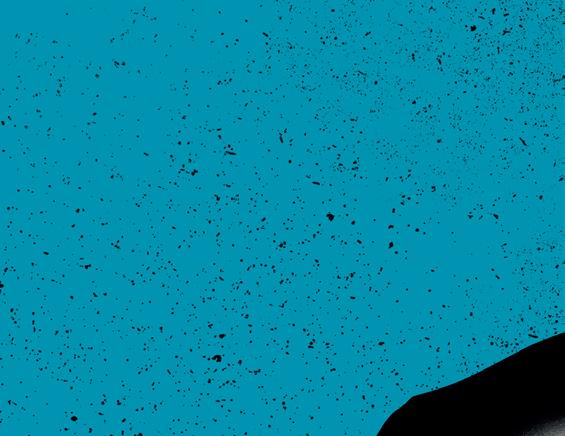
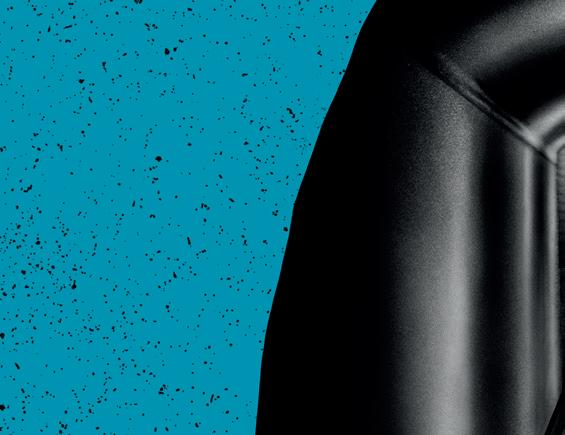


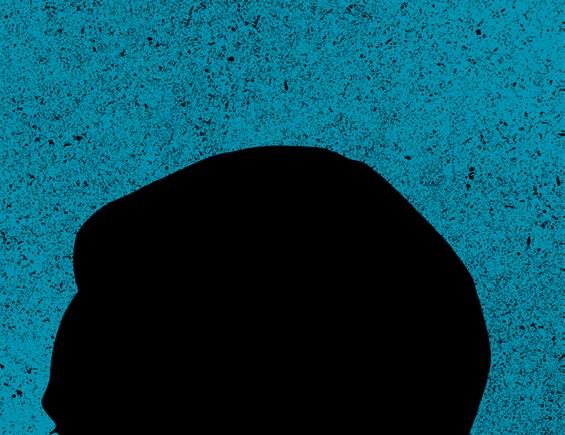
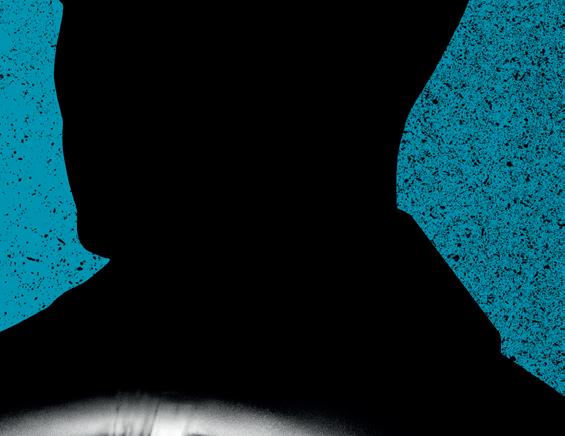
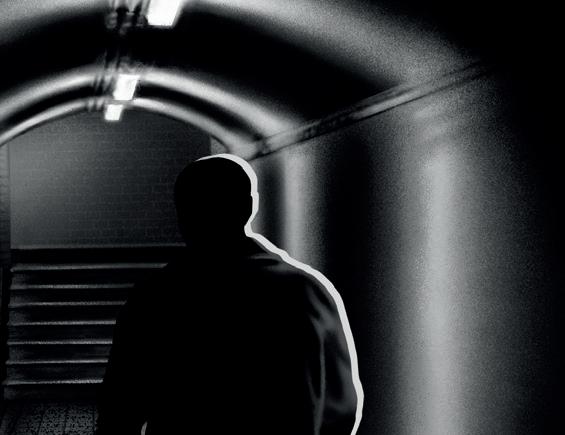
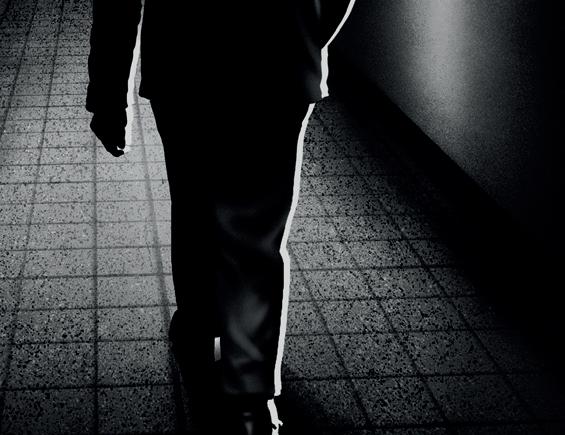
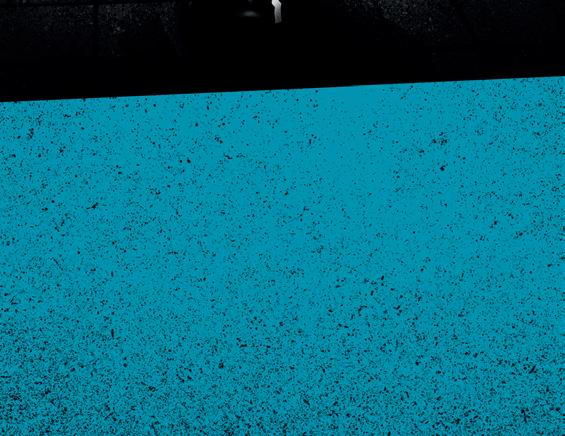


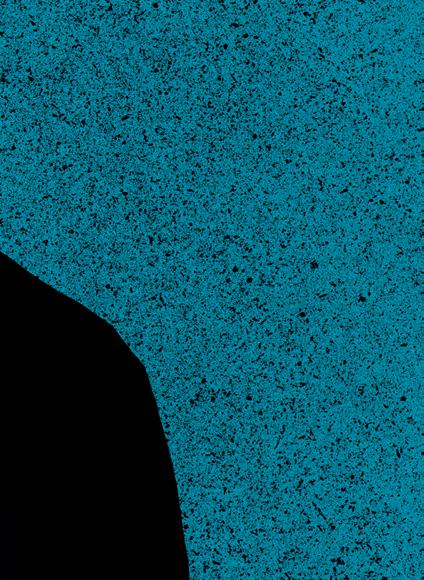

‘Highsmith constructs her plot with masterly finesse’ Daily Telegraph


















‘Highsmith constructs her plot with masterly finesse’ Daily Telegraph



Patricia Highsmith was born in Fort Worth, Texas in 1921 but moved to New York when she was six. In her senior year she edited the college magazine, having decided to become a writer at the age of sixteen. Her first novel, Strangers on a Train, was made into a famous film by Alfred Hitchcock in 1951. Patricia Highsmith died in Locarno, Switzerland in 1995. Her last novel, Small g: a Summer Idyll, was published posthumously just over a month later.
Strangers on a Train
The Price of Salt
The Blunderer
The Talented Mr Ripley
Deep Water
A Game for the Living
This Sweet Sickness
The Two Faces of January
The Cry of the Owl
The Glass Cell
A Suspension of Mercy
Those Who Walk Away
The Tremor of Forgery
Eleven
Ripley Under Ground
A Dog’s Ransom
Variations on a Game
The Animal Lover’s Book of Beastly Murder
Little Tales of Misogyny
Edith’s Diary
Slowly, Slowly in the Wind
The Boy Who Followed Ripley
The Black House
People Who Knock on the Door
Mermaids on the Golf Course
Found in the Street
Tales of Natural and Unnatural Catastrophes
Ripley Under Water
Small g: a Summer Idyll
Vintage Classics is part of the Penguin Random House group of companies
Vintage, Penguin Random House UK, One Embassy Gardens, 8 Viaduct Gardens, London sw11 7bw
penguin.co.uk/vintage-classics global.penguinrandomhouse.com
Copyright © Patricia Highsmith, 1974
The moral right of the author has been asserted
First published in Great Britain by William Heinemann in 1974
Copyright © 1993 by Diogenes Verlag AG, Zurich First published by Vintage in 1999
This paperback first published in Vintage Classics in 2025
Penguin Random House values and supports copyright. Copyright fuels creativity, encourages diverse voices, promotes freedom of expression and supports a vibrant culture. Thank you for purchasing an authorised edition of this book and for respecting intellectual property laws by not reproducing, scanning or distributing any part of it by any means without permission. You are supporting authors and enabling Penguin Random House to continue to publish books for everyone. No part of this book may be used or reproduced in any manner for the purpose of training artificial intelligence technologies or systems. In accordance with Article 4(3) of the DSM Directive 2019/790, Penguin Random House expressly reserves this work from the text and data mining exception.
A CIP catalogue record for this book is available from the British Library isbn 9781784876784
Printed and bound in Great Britain by Clays Ltd, Elcograf S.p.A.
The authorised representative in the EEA is Penguin Random House Ireland, Morrison Chambers, 32 Nassau Street, Dublin d02 yh68
Penguin Random House is committed to a sustainable future for our business, our readers and our planet. This book is made from Forest Stewardship Council® certified paper.
‘There’s no such thing as a perfect murder,’ Tom said to Reeves. ‘That’s just a parlour game, trying to dream one up. Of course you could say there are a lot of unsolved murders. That’s different.’ Tom was bored. He walked up and down in front of his big fireplace, where a small but cosy fire crackled. Tom felt he had spoken in a stuffy, pontificating way. But the point was, he couldn’t help Reeves, and he’d already told him that.
‘Yes, sure,’ said Reeves. He was sitting in one of the yellow silk armchairs, his lean figure hunched forward, hands clasped between his knees. He had a bony face, short, light-brown hair, cold grey eyes – not a pleasant face but a face that might have been rather handsome if not for a scar that travelled five inches from his right temple across his cheek almost to his mouth. Slightly pinker than the rest of his face, the scar looked like a bad job of stitching, or as if perhaps it had never been stitched. Tom had never asked about the scar, but Reeves had volunteered once, ‘A girl did it with her compact. Can you imagine?’ (No, Tom couldn’t.) Reeves had given Tom a quick, sad smile, one of the few smiles Tom could recall from Reeves. And on another occasion, ‘I was thrown from a horse – dragged by the stirrup for a few yards.’ Reeves had said that to someone else, but Tom had been present. Tom suspected a dull knife in a very nasty fight somewhere.
Now Reeves wanted Tom to provide someone, suggest someone to do one or perhaps two ‘simple murders’ and perhaps one theft, also safe and simple. Reeves had come from Hamburg to Villeperce to talk to Tom, and he was going to stay the night and go to Paris tomorrow to talk to someone else about it, then return to his home in Hamburg, presumably to do some more thinking if he failed. Reeves was primarily a fence, but lately was dabbling
in the illegal gambling world of Hamburg, which he was now undertaking to protect. Protect from what? Italian sharks who wanted to come in. One Italian in Hamburg was a Mafia button man, sent out as a feeler, Reeves thought, and the other might be, from a different family. By eliminating one or both of these intruders, Reeves hoped to discourage further Mafia attempts, and also to draw the attention of the Hamburg police to a Mafia threat, and let the police handle the rest, which was to say, throw the Mafia out. ‘These Hamburg boys are a decent batch,’ Reeves had declared fervently. ‘Maybe what they’re doing is illegal, running a couple of private casinos, but as clubs they’re not illegal, and they’re not taking outrageous profits. It’s not like Las Vegas, all Mafia-corrupted, and right under the noses of the American cops!’
Tom took the poker and pushed the fire together, put another neatly cut third-of-a-log on. It was nearly 6 p.m. Soon be time for a drink. And why not now? ‘Would you –’
Mme Annette, the Ripley’s housekeeper, came in from the kitchen hall just then. ‘Excuse me, messieurs. Would you like your drinks now, M. Tome, since the gentleman has not wanted any tea?’
‘Yes, thank you, Mme Annette. Just what I was thinking. And ask Mme Heloise to join us, would you?’ Tom wanted Heloise to lighten the atmosphere a little. He had said to Heloise, before he went to Orly at 3 p.m. to fetch Reeves, that Reeves wanted to talk to him about something, so Heloise had pottered about in the garden or stayed upstairs all afternoon.
‘You wouldn’t,’ Reeves said with a last-minute urgency and hope, ‘consider taking it on yourself ? You’re not connected, you see, and that’s what we want. Safety. And after all, the money, ninety-six thousand bucks, isn’t bad.’
Tom shook his head. ‘I’m connected with you – in a way.’ Dammit, he’d done little jobs for Reeves Minot, like posting on small, stolen items, or recovering from toothpaste tubes, where Reeves had planted them, tiny objects like microfilm rolls from the unsuspecting toothpaste carriers. ‘How much of this cloak and dagger stuff do you think I can get away with? I’ve got my
reputation to protect, you know.’ Tom felt like smiling at that, but at the same time his heart had quickened with genuine feeling, and he stood taller, conscious of the fine house in which he lived, of his secure existence now, six whole months after the Derwatt episode, a near-catastrophe from which he had escaped with no worse than a bit of suspicion upon him. Thin ice, yes, but the ice hadn’t broken through. Tom had accompanied the English Inspector Webster and a couple of forensic men to the Salzburg woods where he had cremated the body of the man presumed to be the painter Derwatt. Why had he crushed the skull, the police had asked. Tom could still wince when he thought of it, because he had done it to try to scatter and hide the upper teeth. The lower jaw had easily come away, and Tom had buried it at a distance. But the upper teeth – Some of them had been gathered by one of the forensic men, but there had been no record of Derwatt’s teeth with any dentist in London, Derwatt having been living (it was believed) in Mexico for the preceding six years. ‘It seemed part of the cremation, part of the idea of reducing him to ashes,’ Tom had replied. The cremated body had been Bernard’s. Yes, Tom could still shudder, as much at the danger of that moment as at the horror of his act, dropping a big stone on the charred skull. But at least he hadn’t killed Bernard. Bernard Tufts had been a suicide.
Tom said, ‘Surely among all the people you know, you can find somebody who can do it.’
‘Yes, and that would be a connection – more than you. Oh, the people I know are sort of known,’ Reeves said with a sad defeat in his voice. ‘You know a lot of respectable people, Tom, people really in the clear, people above reproach.’
Tom laughed. ‘How’re you going to get such people? Sometimes I think you’re out of your mind, Reeves.’
‘No! You know what I mean. Someone who’d do it for the money, just the money. They don’t have to be experts. We’d prepare the way. It’d be like – public assassinations. Someone who if he was questioned would look – absolutely incapable of doing such a thing.’
Mme Annette came in with the bar cart. The silver ice bucket shone. The cart squeaked slightly. Tom had been meaning to oil it for weeks. Tom might have gone on bantering with Reeves because Mme Annette, bless her soul, didn’t understand English, but Tom was tired of the subject, and delighted by Mme Annette’s interruption. Mme Annette was in her sixties, from a Normandy family, fine of feature and sturdy of body, a gem of a servant. Tom could not imagine Belle Ombre functioning without her.
Then Heloise came in from the garden, and Reeves got to his feet. Heloise was wearing bell-bottom pink-and-red-striped dungarees with levi printed vertically down all the stripes. Her blonde hair swung long and loose. Tom saw the firelight glow in it and thought, ‘What purity compared to what we’ve been talking about!’ The light in her hair was gold, however, which made Tom think of money. Well, he didn’t really need any more money, even if the Derwatt picture sales, of which he got a percentage, would soon come to an end because there would be no more pictures. Tom still got a percentage from the Derwatt art supplies company, and that would continue. Then there was the modest but slowly increasing income from the Greenleaf securities which he had inherited by means of a will forged by Tom himself. Not to mention Heloise’s generous allowance from her father. No use being greedy. Tom detested murder unless it was absolutely necessary.
‘Did you have a good talk?’ Heloise asked in English, and fell back gracefully on to the yellow sofa.
‘Yes, thank you,’ said Reeves.
The rest of the conversation was in French, because Heloise was not comfortable in English. Reeves did not know much French but he got along, and they were not talking about anything important: the garden, the mild winter that seemed really to have passed, because here it was early March and the daffodils were opening. Tom poured champagne for Heloise from one of the little bottles on the cart.
‘How ees eet in Hambourg?’ Heloise ventured again in English,
and Tom saw amusement in her eyes as Reeves struggled to get out a conventional response in French.
It was not too cold in Hamburg either, and Reeves added that he had a garden also, as his ‘petite maison’ found itself on the Alster which was water, that was to say a sort of bay where many people had homes with gardens and water, meaning they could have small boats if they wished.
Tom knew that Heloise disliked Reeves Minot, mistrusted him, that Reeves was the kind of person Heloise wanted Tom to avoid. Tom reflected with satisfaction that he could honestly say to Heloise tonight that he had declined to cooperate in the scheme that Reeves had proposed. Heloise was always worried about what her father would say. Her father, Jacques Plisson, was a millionaire pharmaceutical manufacturer, a Gaullist, the essence of French respectability. And he had never cared for Tom. ‘My father will not stand for much more!’ Heloise often warned Tom, but Tom knew she was more interested in his own safety than in hanging on to the allowance her father gave her, an allowance he frequently threatened to cut off, according to Heloise. She had lunch with her parents at their home in Chantilly once a week, usually Friday. If her father ever severed her allowance, they could not quite make it at Belle Ombre, Tom knew.
The dinner menu was médaillons de bœuf, preceded by cold artichokes with Mme Annette’s own sauce. Heloise had changed into a simple dress of pale blue. She sensed already, Tom thought, that Reeves had not got what he had come for. Before they all retired, Tom made sure that Reeves had everything he needed, and at what hour he would like tea or coffee brought to his room. Coffee at 8 a.m., Reeves said. Reeves had the guest room in the left centre of the house, which gave Reeves the bathroom that was usually Heloise’s, but from which Mme Annette had already removed Heloise’s toothbrush to Tom’s bathroom, off his own room.
‘I am glad he is going tomorrow. Why is he so tense?’ Heloise asked, while brushing her teeth.
‘He’s always tense.’ Tom turned off the shower, stepped out and
quickly enveloped himself in a big yellow towel. ‘That’s why he’s thin – maybe.’ They were speaking in English, because Heloise was not shy about speaking English with him.
‘How did you meet him?’
Tom couldn’t remember. When? Maybe five or six years ago. In Rome? Who was Reeves a friend of ? Tom was too tired to think hard, and it didn’t matter. He had five or six such acquaintances, and would have been hard pressed to say where he had met each and every one.
‘What did he want from you?’
Tom put his arm around Heloise’s waist, pressing the loose nightdress close to her body. He kissed her cool cheek. ‘Something impossible. I said no. You can see that. He is disappointed.’
That night there was an owl, a lonely owl calling somewhere in the pines of the communal forest behind Belle Ombre. Tom lay with his left arm under Heloise’s neck, thinking. She fell asleep, and her breathing became slow and soft. Tom sighed, and went on thinking. But he was not thinking in a logical, constructive way. His second coffee was keeping him awake. He was remembering a party he had been to a month ago in Fontainebleau, an informal birthday for a Mme – who? It was her husband’s name that Tom was interested in, an English name that might come to him in a few seconds. The man, the host, had been in his early thirties, and they had a small son. The house was a straight-up-and-down three-storey, on a residential street in Fontainebleau, a patch of garden behind it. The man was a picture framer, that was why Tom had been dragged along by Pierre Gauthier, who had an art supply shop in the Rue Grande, where Tom bought his paints and brushes. Gauthier had said, ‘Oh, come along with me, M. Reeply. Bring your wife! He wants a lot of people. He’s a little depressed . . . And anyway, since he makes frames, you might give him some business.’
Tom blinked in the darkness, and moved his head back a little so his eyelashes would not touch Heloise’s shoulder. He recalled a tall blond Englishman with a certain resentment and dislike, because in the kitchen, that gloomy kitchen with
worn-out linoleum, smoke-stained tin ceiling with a nineteenthcentury bas-relief pattern, this man had made an unpleasant remark to Tom. The man – Trewbridge, Tewksbury? – had said in an almost sneering way, ‘Oh yes, I’ve heard of you.’ Tom had said, ‘I’m Tom Ripley. I live in Villeperce,’ and Tom had been about to ask him how long he’d been in Fontainebleau, thinking that perhaps an Englishman with a French wife might like to make acquaintance with an American with a French wife living not far away, but Tom’s venture had been met with rudeness. Trevanny? Wasn’t that his name? Blond, straight hair, rather Dutch-looking, but then the English often looked Dutch and vice versa.
What Tom was thinking of now, however, was what Gauthier had said later the same evening. ‘He’s depressed. He doesn’t mean to be unfriendly. He’s got some kind of blood disease –leukaemia, I think. Pretty serious. Also as you can see from the house, he’s not doing too well.’ Gauthier had a glass eye of a curious yellow-green colour, obviously an attempt to match the real eye, but rather a failure. Gauthier’s false eye suggested the eye of a dead cat. One avoided looking at it, yet one’s eyes were hypnotically drawn to it, so Gauthier’s gloomy words, combined with his glass eye, had made a strong impression of Death upon Tom, and Tom had not forgotten.
Oh, yes, I’ve heard of you. Did that mean that Trevanny or whatever his name was thought he was responsible for Bernard Tuft’s death, and before that Dickie Greenleaf’s? Or was the Englishman merely embittered against everyone because of his ailment? Dyspeptic, like a man with a constant stomach ache? Now Tom recalled Trevanny’s wife, not a pretty but a rather interestinglooking woman with chestnut hair, friendly and outgoing, making an effort at that party in the small living-room and the kitchen where no one had sat down on the few chairs available.
What Tom was thinking was: would this man take on such a job as Reeves was proposing? An interesting approach to Trevanny had occurred to Tom. It was an approach that might work with any man, if one prepared the ground, but in this case the ground
was already prepared. Trevanny was seriously worried about his health. Tom’s idea was nothing more than a practical joke, he thought, a nasty one, but the man had been nasty to him. The joke might not last more than a day or so, until Trevanny could consult his doctor.
Tom was amused by his thoughts, and eased himself gently from Heloise, so that if he shook with repressed laughter for an instant, he wouldn’t awaken her. Suppose Trevanny was vulnerable, and carried out Reeves’ plan like a soldier, like a dream? Was it worth a try? Yes, because Tom had nothing to lose. Neither had Trevanny. Trevanny might gain. Reeves might gain – according to Reeves, but let Reeves figure that out, because what Reeves wanted seemed as vague to Tom as Reeves’ microfilm activities, which presumably had to do with international spying. Were governments aware of the insane antics of some of their spies? Or those whimsical, half-demented men flitting from Bucharest to Moscow and Washington with guns and microfilm – men who might with the same enthusiasm have put their energies to international warfare in stamp-collecting, or in acquiring secrets of miniature electric trains?
2
So it was that some ten days later, on 22 March, Jonathan Trevanny, who lived in the Rue St Merry, Fontainebleau, received a curious letter from his good friend Alan McNear. Alan, a Paris representative of an English electronics firm, had written the letter just before leaving for New York on a business assignment, and oddly the day after he had visited the Trevannys in Fontainebleau. Jonathan had expected – or rather not expected – a sort of thank-you letter from Alan for the send-off party Jonathan and Simone had given him, and Alan did write a few words of appreciation, but the paragraph that puzzled Jonathan went:
8
Jon, I was shocked at the news in regard to the old blood ailment, and am even now hoping it isn’t so. I was told that you knew, but weren’t telling any of your friends. Very noble of you, but what are friends for? You needn’t think we’ll avoid you or that we’ll think you’ll become so melancholy that we won’t want to see you. Your friends (and I’m one) are here – always. But I can’t write anything I want to say, really. I’ll do better when I see you next, in a couple of months when I wangle myself a vacation, so forgive these inadequate words.
What was Alan talking about? Had his doctor, Dr Perrier, said something to his friends, something he wouldn’t tell him? Something about not living much longer? Dr Perrier hadn’t been to the party for Alan, but could Dr Perrier have said something to someone else?
Had Dr Perrier spoken to Simone? And was Simone keeping it from him, too?
As Jonathan thought of these possibilities, he was standing in his garden at 8.30 a.m., chilly under his sweater, his fingers smudged with earth. He’d best speak with Dr Perrier today. No use with Simone. She might put up an act. But darling, what’re you talking about? Jonathan wasn’t sure he’d be able to tell if she was putting up an act or not.
And Dr Perrier – could he trust him? Dr Perrier was always bouncing with optimism, which was fine if you had something minor – you felt fifty per cent better, even cured. But Jonathan knew he hadn’t anything minor. He had myeloid leukaemia, characterized by an excess of yellow matter in the bone marrow. In the past five years, he’d had at least four blood transfusions per year. Every time he felt weak, he was supposed to get to his doctor, or to the Fontainebleau hospital for a transfusion. Dr Perrier had said (and so had a specialist in Paris) that there would come a time when the decline might be swift, when transfusions wouldn’t do the trick any longer. Jonathan had read enough about his ailment to know that himself. No doctor as yet had come up with a cure for myeloid leukaemia. On the average, it killed after
9
six to twelve years, or six to eight even. Jonathan was entering his sixth year with it.
Jonathan set his fork back in the little brick structure, formerly an outside toilet, that served as a tool shed, then walked to his back steps. He paused with one foot on the first step and drew the fresh morning air into his lungs, thinking, ‘How many weeks will I have to enjoy such mornings?’ He remembered thinking the same thing last spring, however. Buck up, he told himself, he’d known for six years that he might not live to see thirty-five. Jonathan mounted the eight iron steps with a firm tread, already thinking that it was 8.52 a.m., and that he was due in his shop at 9 a.m. or a few minutes after.
Simone had gone off with Georges to the Ecole Maternelle, and the house was empty. Jonathan washed his hands at the sink and made use of the vegetable brush, which Simone would not have approved of, but he left the brush clean. The only other sink was in the bathroom on the top floor. There was no telephone in the house. He’d ring Dr Perrier from his shop the first thing.
Jonathan walked to the Rue de la Paroisse and turned left, then went on to the Rue des Sablons which crossed it. In his shop, Jonathan dialled Dr Perrier’s number, which he knew by heart. The nurse said the doctor was booked up today, which Jonathan had expected.
‘But this is urgent. It’s something that won’t take long. Just a question really – but I must see him.’
‘You are feeling weak, M. Trevanny?’
‘Yes, I am,’ Jonathan said at once.
He got an appointment for twelve noon. The hour had a certain doom about it.
Jonathan was a picture framer. He cut mats and glass, made frames, chose frames from his stock for clients who were undecided, and once in a blue moon, in buying old frames at auctions and from junk dealers, he got a picture that was of some interest with the frame, a picture which he could clean and put in his window and sell. But it wasn’t a lucrative business. He scraped along. Seven years ago he’d had a partner, another Englishman,
from Manchester, and they had started an antique shop in Fontainebleau, dealing mainly in junk which they refurbished and sold. This hadn’t paid enough for two, and Roy had pushed off and got a job as a garage mechanic somewhere near Paris. Shortly after that, a Paris doctor had said the same thing that a London doctor had told Jonathan: ‘You’re inclined to anaemia. You’d better have frequent check-ups, and it’s best if you don’t do any heavy work.’ So from handling armoires and sofas, Jonathan had turned to the lighter work of handling picture frames and glass. Before Jonathan had married Simone, he had told her that he might not live more than another six years, because just at the time he met Simone, he’d had it confirmed by two doctors that his periodic weakness was caused by myeloid leukaemia.
Now, Jonathan thought as he calmly, very calmly began his day, Simone might remarry if he died. Simone worked five afternoons a week from 2.30 p.m. until 6.30 p.m. at a shoe shop in the Avenue Franklin Roosevelt, which was within walking distance of their house, and this was only in the past year when Georges had been old enough to be put into the French equivalent of kindergarten. He and Simone needed the two hundred francs per week that Simone earned, but Jonathan was irked by the thought that Brezard, her boss, was a bit of a lecher, liked to pinch his employees’ behinds, and doubtless try his luck in the back room where the stock was. Simone was a married woman, as Brezard well knew, so there was a limit as to how far he could go, Jonathan supposed, but that never stopped his type from trying. Simone was not at all a flirt – she had a curious shyness, in fact, that suggested that she thought herself not attractive to men. It was a quality that endeared her to Jonathan. In Jonathan’s opinion, Simone was supercharged with sex appeal, though of the kind that might not be apparent to the average man, and it annoyed Jonathan especially that the cruising swine Brezard must have become aware of Simone’s very different kind of attractiveness, and that he wanted some of it for himself. Not that Simone talked much about Brezard. Only once had she mentioned that he tried it on with his women employees who were two besides
Simone. For an instant that morning, as Jonathan presented a framed watercolour to a client, he imagined Simone, after a discreet interval, succumbing to the odious Brezard, who after all was a bachelor and financially better off than Jonathan. Absurd, Jonathan thought. Simone hated his type.
‘Oh, it’s lovely! Excellent!’ said the young woman in a bright red coat, holding the watercolour at arm’s length.
Jonathan’s long, serious face slowly smiled, as if a small and private sun had come out of clouds and begun to shine within him. She was so genuinely pleased! Jonathan didn’t know her, in fact she was picking up the picture that an older woman, perhaps her mother, had brought in. The price should have been twenty francs more than he had first estimated, because the frame was not the same as the older woman had chosen (Jonathan had not had enough in stock), but Jonathan didn’t mention this and accepted the eighty francs agreed upon.
Then Jonathan pushed a broom over his wooden floor, and feather-dusted the three or four pictures in his small front window. His shop was positively shabby, Jonathan thought that morning. No colour anywhere, frames of all sizes leaning against unpainted walls, samples of frame wood hanging from the ceiling, a counter with an order book, ruler, pencils. At the back of the shop stood a long wooden table where Jonathan worked with his mitre boxes, saws and glass cutters. Also on the big table were his carefully protected sheets of mat board, a great roll of brown paper, rolls of string, wire, pots of glue, boxes of variously sized nails, and above the table on the wall were racks of knives and hammers. In principle, Jonathan liked the nineteenth-century atmosphere, the lack of commercial frou-frou. He wanted his shop to look as if a good craftsman ran it, and in that he had succeeded, he thought. He never overcharged, did his work on time, or if he was going to be late, he notified his clients by postcard or a telephone call. People appreciated that, Jonathan had found.
At 11.35 a.m., having framed two small pictures and fixed their owners’ names to them, Jonathan washed his hands and face at the cold water tap in his sink, combed his hair, stood up straight
and tried to brace himself for the worst. Dr Perrier’s office was not far away in the Rue Grande. Jonathan turned his door card to ouvert at 14.30, locked his front door, and set out.
Jonathan had to wait in Dr Perrier’s front room with its sickly, dusty rose laurel plant. The plant never flowered, it didn’t die, and never grew, never changed. Jonathan identified himself with the plant. Again and again his eyes were drawn to it, though he tried to think of other things. There were copies of Paris Match on the oval table, out of date and much thumbed, but Jonathan found them more depressing than the laurel plant. Dr Perrier also worked at the big Hôpital de Fontainebleau, Jonathan reminded himself, otherwise it would have seemed an absurdity to entrust one’s life, to believe an opinion of whether one lived or died, to a doctor who worked in such a wretched little place as this looked.
The nurse came out and beckoned.
‘Well, well, how’s the interesting patient, my most interesting patient?’ said Dr Perrier, rubbing his hands, then extending one to Jonathan.
Jonathan shook his hand. ‘I feel quite all right, thank you. But what is this about – I mean the tests of two months ago. I understand they are not so favourable?’
Dr Perrier looked blank, and Jonathan watched him intently. Then Dr Perrier smiled, showing yellowish teeth under his carelessly trimmed moustache.
‘What do you mean unfavourable? You saw the results.’
‘But – you know I’m not an expert in understanding them – perhaps.’
‘But I explained them to you – Now what is the matter? You’re feeling tired again?’
‘In fact no.’ Since Jonathan knew the doctor wanted to get away for lunch, he said hastily, ‘To tell the truth, a friend of mine has learned somewhere that – I’m due for a crisis. Maybe I haven’t long to live. Naturally, I thought this information must have come from you.’
Dr Perrier shook his head, then laughed, hopped about like a bird and came to rest with his skinny arms lightly outspread
on the top of a glass-enclosed bookcase. ‘My dear sir – first of all, if it were true, I would not have said it to anybody. That is not ethical. Second, it is not true, as far as I know from the last test. – Do you want another test today? Late this afternoon at the hospital, maybe I –’
‘Not necessarily. What I really wanted to know is – is it true? You wouldn’t just not tell me?’ Jonathan said with a laugh. ‘Just to make me feel better?’
‘What nonsense! Do you think I’m that kind of a doctor?’
Yes, Jonathan thought, looking Dr Perrier straight in the eye. And God bless him, maybe, in some cases, but Jonathan thought he deserved the facts, because he was the kind of man who could face the facts. Jonathan bit his underlip. He could go to the lab in Paris, he thought, insist on seeing the specialist Moussu again. Also he might get something out of Simone today at lunch-time.
Dr Perrier was patting his arm. ‘Your friend – and I won’t ask who he is! – is either mistaken or not a very nice friend, I think. Now then, you should tell me when and if you become tired, that is what counts . . .’
Twenty minutes later, Jonathan was climbing the front steps of his house, carrying an apple tart and a long loaf of bread. He let himself in with his key, and walked down the hall to the kitchen. He smelled frying potatoes, a mouth-watering smell always signifying lunch, not dinner, and Simone’s potatoes would be in long slender pieces, not short chunks like the chips in England. Why had he thought of English chips?
Simone was at the stove, wearing an apron over her dress, wielding a long fork. ‘Hello, Jon. You’re a little late.’
Jonathan put an arm around her and kissed her cheek, then held up the paper box, swung it towards Georges who was sitting at the table, blond head bent, cutting out parts for a mobile from an empty box of cornflakes.
‘Ah, a cake! What kind?’ Georges asked.
‘Apple.’ Jonathan set the box on the table.
They had a small steak each, the delicious fried potatoes, a green salad.
‘Brezard is starting inventory,’ Simone said. ‘The summer stock comes in next week, so he wants to have a sale Friday and Saturday. I might be a little late tonight.’
She had warmed the apple tart on the asbestos plate. Jonathan waited impatiently for Georges to go in the living-room where a lot of his toys were, or out to the garden. When Georges left finally Jonathan said:
‘I had a funny letter today from Alan.’
‘Alan? Funny how?’
‘He wrote it just before he went to New York. It seems he’s heard –’ Should he show her Alan’s letter? She could read English well enough. Jonathan decided to go on. ‘He’s heard somewhere that I’m worse, due for a bad crisis – or something. Do you know anything about it?’ Jonathan watched her eyes.
Simone looked genuinely surprised. ‘Why no, Jon. How would I hear – except from you?’
‘I spoke with Dr Perrier just now. That’s why I was a bit late. Perrier says he doesn’t know of any change in the situation, but you know Perrier!’ Jonathan smiled, still watching Simone anxiously. ‘Well, here’s the letter,’ he said, pulling it from his back pocket. He translated the paragraph.
‘Mon dieu! – Well, where did he hear it from?’
‘Yes, that’s the question. I’ll write him and ask. Don’t you think?’ Jonathan smiled again, a more genuine smile. He was sure Simone didn’t know anything about it.
Jonathan carried a second cup of coffee into the small square living-room where Georges was now sprawled on the floor with his cut-outs. Jonathan sat down at the writing desk, which always made him feel like a giant. It was a rather dainty French écritoire, a present from Simone’s family. Jonathan was careful not to put too much weight on the writing shelf. He addressed an air-letter to Alan McNear at the Hotel New Yorker, began the letter breezily enough, and wrote a second paragraph:
I don’t know quite what you mean in your letter about the news (about me) which shocked you. I feel all right, but this morning spoke
with my doctor here to see if he was giving me the whole story. He disclaims any knowledge of a worse condition. So dear Alan, what does interest me is where did you hear it? Could you possibly drop me a line soon? It sounds like a misunderstanding, I’d be delighted to forget it, but I hope you can understand my curiosity as to where you heard it.
He dropped the letter in a yellow box en route to his shop. It would probably be a week before he heard from Alan.
That afternoon, Jonathan’s hand was as steady as ever as he pulled his razor knife down the edge of his steel ruler. He thought of his letter, making its progress to Orly airport, maybe by this evening, maybe by tomorrow morning. He thought of his age, thirty-four, and of how pitifully little he would have done if he were to die in another couple of months. He’d produced a son, and that was something, but hardly an achievement worthy of special praise. He would not leave Simone very secure. If anything, he had lowered her standard of living slightly. Her father was only a coal merchant, but somehow over the years her family had gathered a few conveniences of life around them, a car for instance, decent furniture. They vacationed in June or July down south in a villa which they rented, and last year they had paid a month’s rent so that Jonathan and Simone could go there with Georges. Jonathan had not done as well as his brother Philip, two years older than himself, though Philip had looked physically weaker, had been a dull, plodding type all his life. Now Philip was a professor of anthropology at Bristol University, not brilliant, Jonathan was sure, but a good solid man with a solid career, a wife and two children. Jonathan’s mother, a widow now, had a happy existence with her brother and sister-in-law in Oxfordshire, taking care of the big garden there and doing all the shopping and cooking. Jonathan felt himself the failure of his family, both physically and as to his work. He had first wanted to be an actor. At eighteen he’d gone to a drama school for two years. He’d not a bad face for an actor, he thought, not too handsome with a big nose and wide mouth, yet good-looking enough to play romantic roles,
and at the same time heavy enough to play heavier roles in time. What pipe dreams! He’d hardly got two walk-on parts in the three years he’d hung around London and Manchester theatres – always supporting himself, of course, by odd jobs, induding one as a veterinary’s assistant. ‘You take up a lot of space and you’re not even sure of yourself,’ a director once said to him. And then, working for an antique dealer in another of his odd jobs, Jonathan had thought he might like the antique business. He had learned all he could from his boss, Andrew Mott. Then the grand move to France with his chum Roy Johnson, who had also had enthusiasm, if not much knowledge, for starting an antique shop via the junk trade. Jonathan remembered his dreams of glory and adventure in a new country, France, dreams of freedom, of success. And instead of success, instead of a series of educational mistresses, instead of making friends with the bohemians, or with some stratum of French society which Jonathan had imagined existed but perhaps didn’t – instead of all this Jonathan had continued to limp along, no better off really than when he’d been trying to get jobs as an actor and had supported himself any old way.
The only successful thing in his whole life was his marriage to Simone, Jonathan thought. The news of his disease had come in the same month he had met Simone Foussadier. He’d begun to feel strangely weak and had romantically thought that it might be due to falling in love. But a little extra rest hadn’t shaken the weakness, he had fainted once in a street of Nemours, so he had gone to a doctor – Dr Perrier in Fontainebleau, who had suspected a blood condition and sent him to a Dr Moussu in Paris. The specialist Moussu, after two days of tests, had confirmed myeloid leukaemia, and said that he might have from six to eight, with luck twelve years to live. There would be an enlargement of the spleen, which in fact Jonathan already had without having noticed it. Thus Jonathan’s proposal to Simone had been a declaration of love and death in the same awkward speech. It would have been enough to put most young women off, or to have made them say they needed time to think about it. Simone had said yes, she loved
17
him too. ‘It is the love that is important, not the time,’ Simone had said. None of the calculations that Jonathan had associated with the French, and with Latins in general. Simone said she had already spoken to her family. And this after they had known each other only two weeks. Jonathan felt himself suddenly in a world more secure than any he had ever known. Love, in a real and not a merely romantic sense, love that he had no control over, had miraculously rescued him. In a way, he felt that it had rescued him from death, but he realized that he meant that love had taken the terror out of death. And here was death six years later, as Dr Moussu in Paris had predicted. Perhaps. Jonathan didn’t know what to believe.
He must make another visit to Moussu in Paris, he thought. Three years ago, Jonathan had had a complete change of blood under Dr Moussu’s supervision in a Paris hospital. The treatment was called Vincainestine, the idea or the hope being that the excess of white with accompanying yellow components would not return to the blood. But the yellow excess had reappeared in about eight months.
Before he made an appointment with Dr Moussu, however, Jonathan preferred to wait for a letter from Alan McNear. Alan would write at once, Jonathan felt sure. One could count on Alan.
Jonathan, before he left his shop, cast one desperate glance around its Dickensian interior. It wasn’t really dusty, it was just that the walls needed repainting. He wondered if he should make an effort to spruce the place up, start soaking his customers as so many picture framers did, sell lacquered brass items with big mark-ups? Jonathan winced. He wasn’t the type.
That day was Wednesday. On Friday, while bending over a stubborn screw-eye that had been in an oak frame for perhaps a hundred and fifty years and had no intention of yielding to his pliers, Jonathan had suddenly to drop the pliers and look for a seat. The seat was a wooden box against a wall. He got up almost at once and wet his face at the sink, bending as low as he could. In five minutes or so, the faintness passed, and by lunch-time he
had forgotten about it. Such moments came every two or three months, and Jonathan was glad if they didn’t catch him on the street.
On Tuesday, six days after he had posted his letter to Alan, he received a letter from the Hotel New Yorker.
Dear Jon,
Believe me, I’m glad you spoke with your doctor and that the news is good! The person who told me you were in a serious way was a little balding fellow with moustache and a glassy eye, early forties maybe. He seemed really concerned, and perhaps you shouldn’t hold it too much against him, as he may have heard it from someone else.
I’m enjoying this town and wish you and Simone were here, esp. as I’m on an expense account . . .
The man Alan meant was Pierre Gauthier, who had an art supply shop in the Rue Grande. He was not a friend of Jonathan’s, just an acquaintance. Gauthier often sent people to Jonathan to have their pictures framed. Gauthier had been at the house the night of Alan’s send-off party, Jonathan remembered distinctly, and must have spoken to Alan then. It was out of the question that Gauthier had spoken maliciously. Jonathan was only a little surprised that Gauthier even knew he had a blood ailment, though the word did get around, Jonathan realized. Jonathan thought the thing to do was speak to Gauthier and ask him where he’d heard the story.
It was 8.50 a.m. Jonathan had waited for the post, as he had yesterday morning also. His impulse was to go straight to Gauthier’s, but he felt this would show unseemly anxiety, and that he’d better get his bearings by going to his shop and opening as usual.
Because of three or four customers, Jonathan hadn’t a break till 10.25 a.m. He left his clock card in the glass of his door indicating that he would be open again at 11 a.m.
When Jonathan entered the art supply shop, Gauthier was busy with two women customers. Jonathan pretended to browse
19
among racks of paint brushes until Gauthier was free. Then he said:
‘M. Gauthier! How goes it?’ Jonathan extended a hand.
Gauthier clasped Jonathan’s hand in both his own and smiled. ‘And you, my friend?’
‘Well enough, thank you . . . Ecoutez. I don’t want to take your time – but there is something I would like to ask you.’
‘Yes? What’s that?’
Jonathan beckoned Gauthier farther away from the door which might open at any minute. There was not much standing room in the little shop. ‘I heard from a friend – my friend Alan, you remember? The Englishman. At the party at my house a few weeks ago.’
‘Yes! Your friend the Englishman. Alain.’ Gauthier remembered and looked attentive.
Jonathan tried to avoid even glancing at Gauthier’s false eye, but to concentrate on the other eye. ‘Well, it seems you told Alan that you’d heard I was very ill, maybe not going to live much longer.’
Gauthier’s soft face grew solemn. He nodded. ‘Yes, m’sieur, I did hear that. I hope it’s not true. I remember Alain, because you introduced him to me as your best friend. So I assumed he knew. Perhaps I should have said nothing. I am sorry, it was perhaps tactless. I thought you were – in the English style – putting on a brave face.’
‘It’s nothing serious, M. Gauthier, because as far as I know, it’s not true! I’ve just spoken with my doctor. But –’
‘Ah, bon! Ah well, that’s different! I’m delighted to hear that, M. Trevanny! Ha! Ha!’ Pierre Gauthier gave a clap of laughter as if a ghost had been laid, and he found not only Jonathan but himself back among the living.
‘But I’d like to know where you heard this. Who told you I was ill?’
‘Ah – yes!’ Gauthier pressed a finger to his lips, thinking. ‘Who? A man. Yes – of course!’ He had it, but he paused.
Jonathan waited.